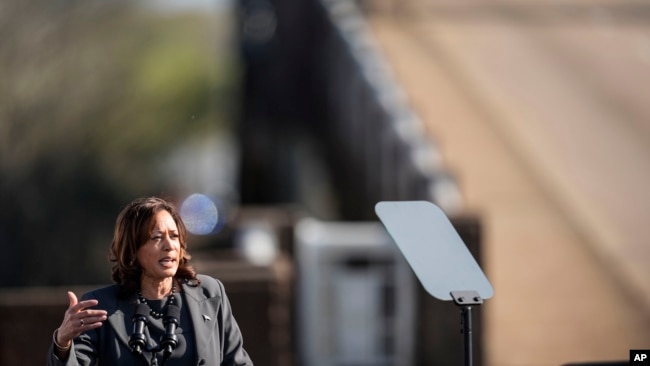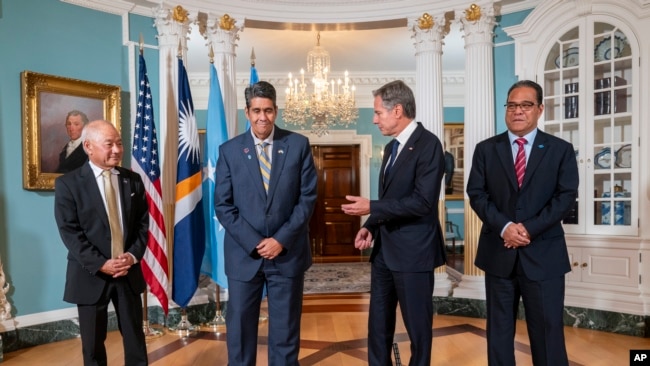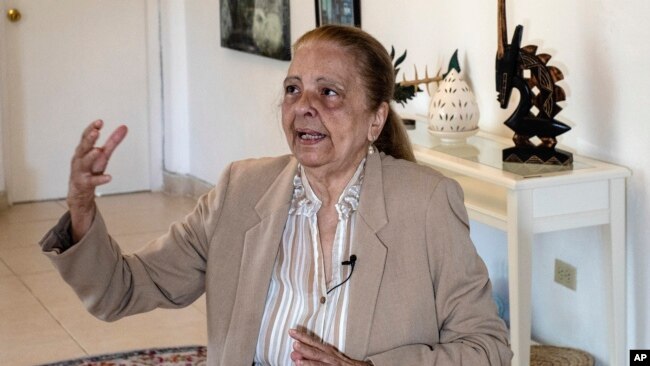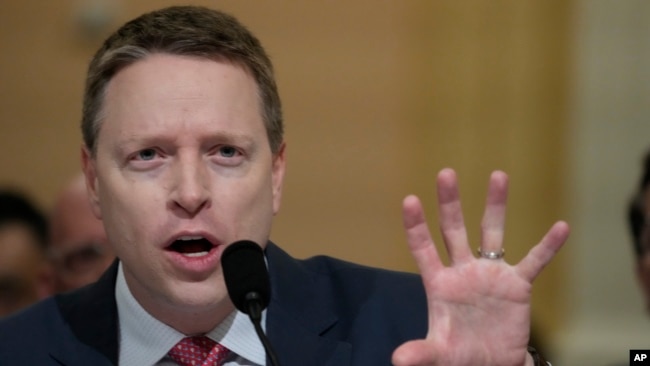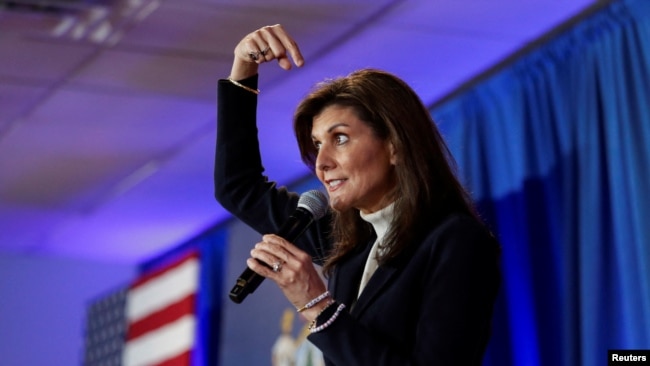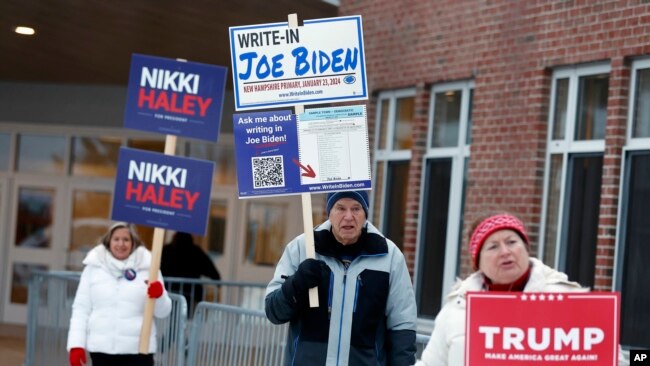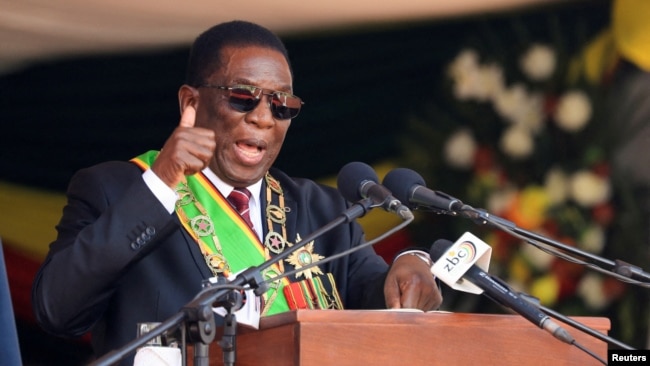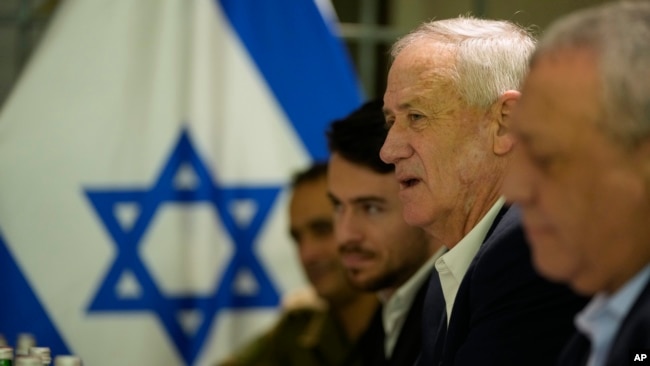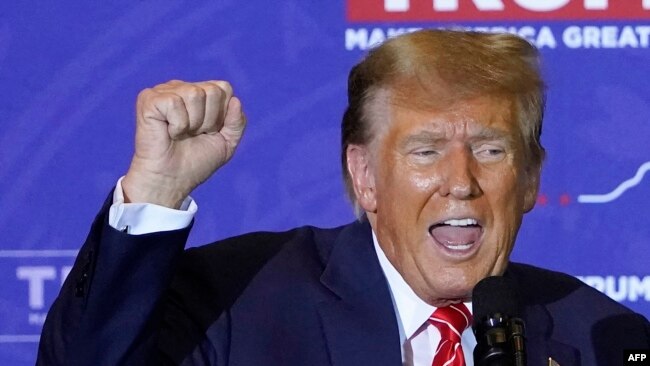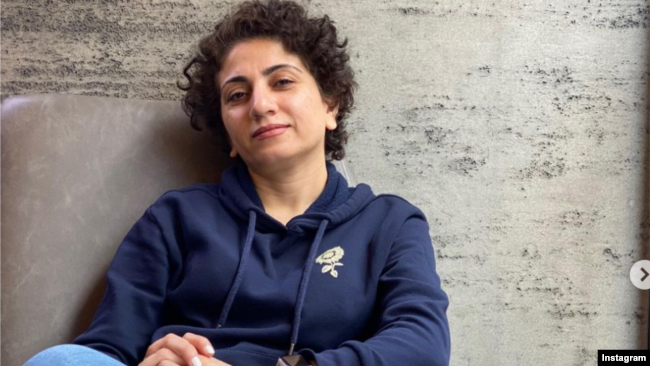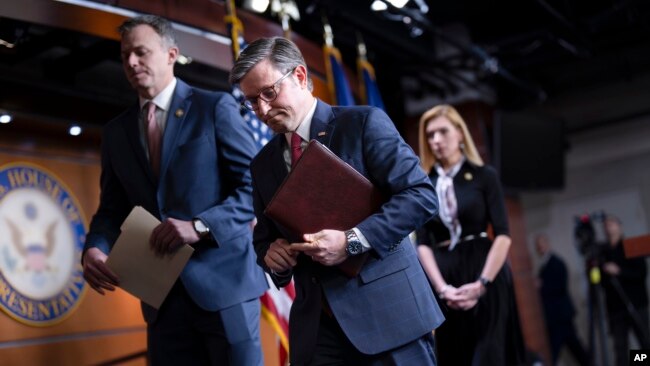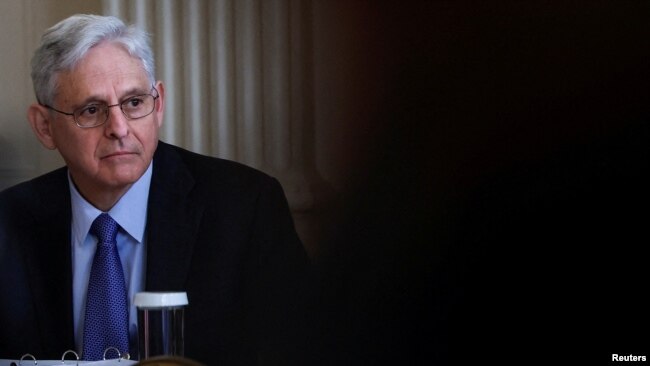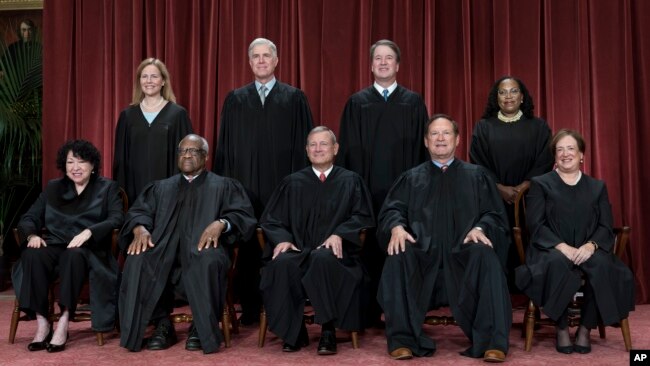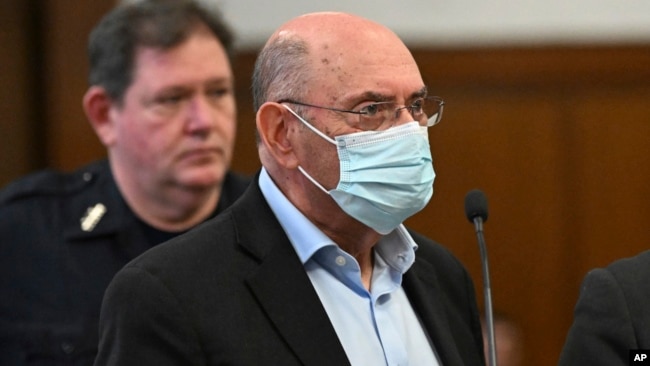'러시아의 뒷마당' 상표 거부에 나선 중앙아시아
Newly Assertive Central Asia Rejects 'Russia's Backyard' Label
페이지 정보
작성자 Navbahor Imamova 작성일 23-11-21 18:00 댓글 0본문
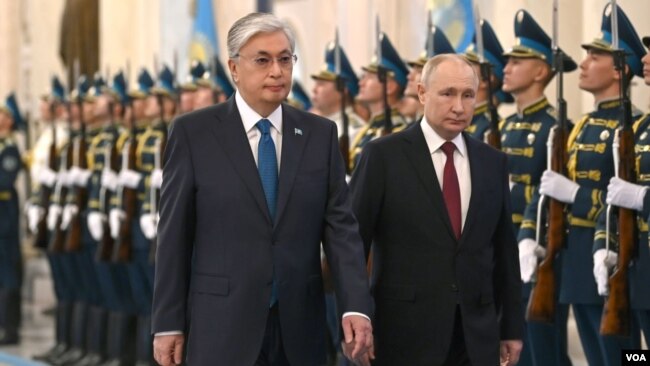
카자흐스탄의 Kassym-Jomart Tokayev 대통령은 2023년 11월 9일 아스타나에서 러시아의 블라디미르 푸틴 대통령을 주최합니다. 카자흐스탄과 다른 중앙 아시아 국가들은 "러시아의 뒷마당"이라는 이미지를 불식시키기 위해 노력하고 있습니다. (사진제공: 카자흐스탄 대통령실)
Kazakhstan's President Kassym-Jomart Tokayev hosts Russia's President Vladimir Putin on Nov. 9, 2023, in Astana. Kazakhstan and the other Central Asia countries are working to dispel an image as "Russia's backyard." (Photo courtesy of the Kazakhstan President's Office)
워싱턴 —
WASHINGTON —
Kassym-Jomart Tokayev 카자흐스탄 대통령은 11월 9일 카자흐스탄 수도에서 가진 브리핑에서 방문 중인 러시아 대통령에게 모국어로 연설을 했을 때 블라디미르 푸틴 대통령과 수행원들을 당황시켰습니다.
Kazakhstan President Kassym-Jomart Tokayev bewildered Vladimir Putin and his entourage when, during a November 9 briefing in the Kazakh capital, he addressed the visiting Russian president in his native tongue.
토카예프가 카자흐스탄어로 30초도 안 되는 짧은 시간 동안 제스처는 카자흐스탄은 러시아가 아니라는 점을 지적했습니다. 모스크바는 전략적 동맹국이자 과거가 공유된 이웃이지만 카자흐스탄은 주권 국가입니다.
While Tokayev spoke in Kazakh for less than 30 seconds, the gesture made a point: Kazakhstan is not Russia. Moscow is a strategic ally and neighbor with a shared past, but Kazakhstan is a sovereign nation.
아자마트 주니스바이(Azamat Junisbai) 피처 칼리지 교수는 X에 올린 글에서 "용기가 필요하다"고 말했습니다. "토카예프 대통령이 카자크에서 자신의 메시지의 작은 부분이라도 전달하는 것을 강조한 것은 맥락을 아는 사람들에게 의미 있고 감사합니다."
"It takes courage," Azamat Junisbai, professor at Pitzer College, remarked in a posting on X. "That President Tokayev made a point of delivering even a small part of his message in Qazaq is meaningful and appreciated by those who know the context."
주니스바이의 글은 러시아어 철자법이 아닌 모국어를 사용하여 모스크바와는 별개로 독자적인 정체성을 확립하려는 구소련 공화국의 의지를 반영했습니다.
Junisbai's posting, using the native rather than the more familiar Russian spelling for the language, itself reflected the former Soviet republic's determination to establish its own identity apart from Moscow.
인식의 변화가 더디다
Changes in perception slow in coming
토카예프를 비롯한 중앙아시아 지도자들, 특히 우즈베키스탄의 샤브카트 미르지요예프는 전 세계를 순방하며 주요 투자 계약을 체결하고 국내에서 국제 정상회담을 개최하며 이 지역에 대한 개발 의제와 비전을 홍보해 왔습니다.
Tokayev and other Central Asian leaders, especially Uzbekistan's Shavkat Mirziyoyev, have been traveling the world, signing major investment deals and hosting international summits at home, promoting their development agendas and visions for the region.
그러나 최근 중앙아시아를 "러시아의 뒷마당"이라고 지칭한 로이터, 도이체벨레, 월스트리트저널, 타임 등 주요 뉴스 간행물을 포함하여 서구의 많은 사람들은 이러한 추세를 인정하는 데 느렸습니다
Yet many in the West have been slow to acknowledge the trend, including major news publications such as Reuters, Deutsche Welle, The Wall Street Journal and Time, all of which have recently referred to Central Asia as "Russia's backyard."
예를 들어, 블룸버그는 프랑스 대통령의 이번 달 중앙아시아 방문을 "새로운 친구와 우라늄을 찾는 푸틴의 뒷마당에 있는 마크롱 랜드"라는 관심사로 다뤘습니다
Bloomberg, for example, covered the French president's visit to Central Asia this month with an attention-grabbing "Macron Lands in Putin's Backyard Seeking New Friends and Uranium."
중앙아시아와 일부 서구 연구자들은 이 문구를 자신들의 역사와 문화, 궤적이 있는 지역을 점점 더 식민지적이고 거들먹거리는 방식으로 이해한다는 증거로 보고 이 문구를 비난하고 있습니다.
Central Asian and some Western researchers take offense at the phrase, which they increasingly see as evidence of a colonial and condescending way of understanding a region that has its own history, culture and trajectory.
"블룸버그가 카자흐스탄/중앙아시아를 '푸틴의 뒷마당'으로 줄이는 것은 무지하고 모욕적이며 비윤리적인 저널리즘의 새로운 차원일 뿐입니다."라고 조지 워싱턴 대학의 카자흐스탄 출신 박사과정 학생인 아크보타 카리바예바가 X에 썼습니다.
"Bloomberg reducing Kazakhstan/Central Asia to 'Putin's backyard' is just a new level of ignorant, insulting, and unethical journalism," wrote Akbota Karibayeva, a doctoral student from Kazakhstan at George Washington University, on X.
키르기스스탄 비슈케크에 있는 OSCE 아카데미의 아셀 둘로트켈디에바도 X에 대해 이렇게 반응했습니다. "블룸버그는 나라 이름을 굳이 쓰지도 않았습니다. 카자흐스탄은 그저 '뒷마당'일 뿐입니다. 그렇다면, 이 서양 제국주의 담론이 러시아의 중앙아시아에 대한 제국주의 담론과 어떻게 다른지 말해보세요. 당신은 얼마나 나은가요?"
Asel Doolotkeldieva with the OSCE Academy in Bishkek, Kyrgyzstan, also reacted on X: "Bloomberg didn't even bother to write the country's name. Kazakhstan is just a 'backyard.' So tell me, how this Western imperial discourse is different from the Russian imperial discourse on Central Asia? How better you are?"
에릭 루덴시올드(Eric Rudenshiold)는 최근 워싱턴 원탁회의에서 "중앙아시아는 비행장이 아닙니다. 그것은 목적지입니다."라고 말했습니다. 바이든과 트럼프 행정부의 전 중앙아시아 국가안보회의(NSC) 국장은 현재 워싱턴 캐스피안 정책 센터(Caspian Policy Center)의 선임 연구원입니다.
Eric Rudenshiold said in a recent Washington roundtable, "Central Asia is not a flyover zone. It is a destination." The former National Security Council director for Central Asia under the Biden and Trump administrations is now a senior fellow at the Caspian Policy Center in Washington.
중앙아시아, "강력한 약속" 요구
Central Asia wants “strong commitment”
같은 패널 토론에서 타슈켄트에서 원격으로 연설한 우즈벡 학자 아크람 우마로프는 중앙아시아와의 관계를 증진시키고자 하는 국가들이 이러한 새로운 정체성을 인식할 필요가 있다고 주장했습니다.
Speaking remotely from Tashkent on the same panel discussion, Uzbek scholar Akram Umarov argued that countries seeking to boost relations with Central Asia need to appreciate that emerging identity.
그는 "중앙아시아는 자체 개발에 초점을 맞추고 있다"며 "미국을 포함한 파트너들의 강력한 약속과 오랜 관심을 원한다"고 말했습니다
"Central Asia is focused on its own development," he said. "It wants a strong commitment and longstanding interest from its partners, including the United States."
그 정체성의 일부는 중앙아시아가 러시아, 중국, 이란, 아프가니스탄에 의해 내륙에 둘러싸여 있고 동아시아와 서아시아 사이의 갈림길에 서 있는 "힘든 이웃"에 위치함으로써 형성됩니다.
Part of that identity is forged by Central Asia's location in a "tough neighborhood" — landlocked and surrounded by Russia, China, Iran and Afghanistan — while standing at the crossroads between eastern and western Asia.
"우리는 항상 중요한 우리의 지리를 바꿀 수 없습니다. 당신은 당신이 가진 것을 처리하므로 우리는 실용적일 필요가 있습니다."라고 우마로프는 말했습니다.
"We cannot change our geography, which always matters. You deal with what you have, so we need to be pragmatic," Umarov said.
그의 카자흐스탄 동료인 이스칸데르 아킬바예프는 중앙아시아는 단순히 더 크고 더 강력한 국가들을 연결하는 지역이 아니라 상업 중심지로 탈바꿈하는 것을 목표로 한다고 덧붙였습니다.
His Kazakh colleague Iskander Akylbayev added that Central Asia is more than simply an area connecting larger, more powerful states, but one that aims to transform itself into a commercial hub.
세계 12대 산유국 중 하나인 카자흐스탄은 "에너지 중심의 협력만을 원하는 것이 아닙니다. 카자흐스탄은 지식 기반의 경제가 되기를 원합니다"라고 말하며, 중앙아시아에 더 많은 투자를 유치하고 이미지를 높일 수 있는 지역 연결성의 중요성을 강조했습니다.
Kazakhstan, one of the world's top 12 oil producers, "does not just want an energy-oriented cooperation. It wants to become a knowledge-based economy," Akylbayev said, stressing the importance of regional connectivity, which could lure more investment to Central Asia and boost its image.
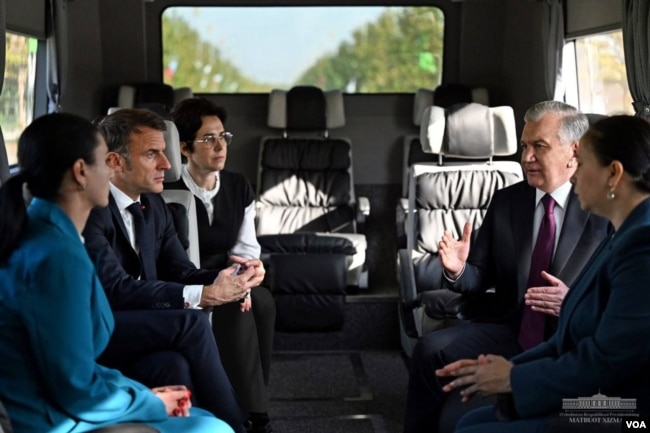
에마뉘엘 마크롱 프랑스 대통령이 2023년 11월 2일 샤브카트 미르지요예프 대통령과 환담하며 우즈베키스탄을 방문합니다. (사진제공: 우즈베키스탄 대통령실)
French President Emmanuel Macron visits Uzbekistan, talking with President Shavkat Mirziyoyev on Nov. 2, 2023. (Photo courtesy of the Uzbekistan President's Office)
그러나 우즈벡과 카자흐스탄 관리들에 따르면, 현실은 더 복잡합니다. 그들은 이 지역의 지도자들이 러시아의 침략에 대한 두려움과 미국과 유럽연합에 대한 불신이 남아있는 것에 깊은 영향을 받고 있다는 것을 인정합니다. 중앙 아시아의 정부들은 찾기 힘든 균형을 추구하며 위험을 무릅쓰고 있습니다.
But the reality is more complicated, according to Uzbek and Kazakh officials, who acknowledge that the region's leaders are deeply affected by a fear of Russian aggression and a lingering distrust of the U.S. and the EU. Central Asian governments find themselves hedging, seeking an elusive balance.
바이든 행정부의 한 관계자는 중앙아시아의 상황에 대해 미국의소리(VOA)와 배경을 두고 "러시아, 중국, 이란, 아프가니스탄에 둘러싸여 있을 때 어떻게 물건을 옮기고 이익을 추구합니까?"라고 반문했습니다
Speaking on background with VOA about Central Asia's predicament, a Biden administration official echoed this concern: "How do you move your goods and push for your interests when you are surrounded by Russia, China, Iran and Afghanistan?"
미국을 위한 오프닝.
Openings for the U.S.
Rudenshiold는 중앙아시아 5개국이 "더 세계적인 미래로 연결하기 위해 협력하고 이전의 고립에서 벗어나는데, 이 과정이 미국에 중요한 새로운 기회를 만들어 준 것"이라고 보고 있습니다
Rudenshiold sees the five Central Asian states "working together and breaking free from their former isolation to connect to a more global future — a process that has created significant new openings for the United States."
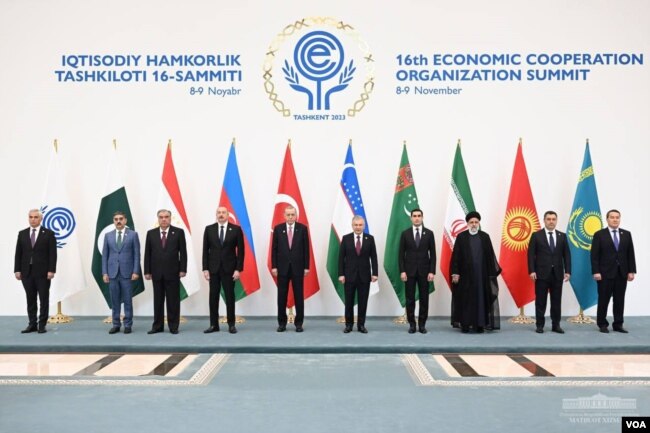
2023년 11월 9일 우즈베키스탄 타슈켄트에서 열린 경제협력기구 회원국 정상회의에 각국 정상들이 모이고 있습니다. (사진제공: 우즈베키스탄 대통령실)
The heads of state gather at the Economic Cooperation Organization's member meeting in Tashkent, Uzbekistan, on Nov. 9, 2023. (Photo courtesy of the Uzbekistan President's Office)
중국, 걸프 국가들과 EU는 중앙 아시아인들이 "러시아의 목줄"로부터 해방시켜 주기를 바라는 수십억 달러를 투자하겠다고 약속하고 있습니다. 루덴시올드는 최근 카스피 정책 센터에 기고한 글에서, 이에 비해 미국의 약속은 무색하다고 지적했습니다.
China, the Gulf states and the EU are promising to invest billions that Central Asians hope will free them from "Russia's stranglehold." America's pledge pales by comparison, Rudenshiold noted in his recent article for the Caspian Policy Center.
카자흐스탄은 동아시아 상품이 자국 영토인 카스피해와 캅카스를 거쳐 서방으로 수송되는 '미들 코리더(Middle Corridor)' 개발에 열을 올리고 있습니다. 두 개의 육지로 둘러싸인 우즈베키스탄은 항구에 접근하기 위해 필사적입니다. 투르크메니스탄은 주 자원의 판매를 촉진하기 위해 카스피해를 횡단하는 가스관을 원합니다.
Kazakhstan is eager to develop a "Middle Corridor" through which East Asian goods can be transported to the West via its territory, the Caspian Sea and the Caucasus. Double-landlocked Uzbekistan is desperate to access seaports. Turkmenistan wants a trans-Caspian gas pipeline to facilitate the sale of its main resource.
"워싱턴은 이 지역을 지원할 중요한 기회를 놓치고 있습니다,"라고 루덴시올드는 말했습니다. "미국 외교관들과 개발 전문가들이 중앙아시아 수도들에 올바른 메시지를 보내고 있지만, 그들은 후속 조치를 취할 충분한 자원을 가지고 있지 않습니다."
"Washington is missing out on a critical opportunity to assist the region," Rudenshiold said. "U.S. diplomats and development experts are sending the right messages to Central Asian capitals, but they don't have sufficient resources to follow up."
하지만 어떻게 하면 이 지역이 투자할 가치가 있다고 미국 의회를 설득할 수 있을까요? 특히 이 지역을 뒷마당으로 묘사하는 보고서들에 의해 적어도 부분적으로는 정보를 얻었지만, 여전히 중앙아시아 공화국들을 러시아와 중국의 봉신으로 간주하고 있는 많은 국회의원들에게 이것은 불가능한 임무처럼 보입니다.
But how to convince the U.S. Congress that the region is worth investing in? It seems to some like a mission impossible, especially when many lawmakers — at least partly informed by reports describing the region as a backyard — still view Central Asian republics as vassals of Russia and China.
미국 의원들은 '잭슨-바닉 수정헌법'을 폐기하는 것으로 시작할 수도 있다고 루덴시홀드는 제안했습니다. 원래 소련과의 무역을 제한하기 위해 50년 전에 채택된 이 법은 아직도 일부 국가들이 미국과의 무역상대국 지위를 얻는 것을 막고 있습니다.
U.S. lawmakers could start by scrapping the Jackson-Vanik Amendment, Rudenshiold suggested. The law, adopted nearly 50 years ago originally to restrict trade with the Soviet Union, still blocks some countries from achieving most-favored nation trading status with the United States.
미국은 중앙아시아의 이웃 국가들을 무역 파트너로 대체할 수는 없지만, 중앙아시아인들이 "모스크바와 중국의 지시가 아닌 그들만의 조건으로 사업을 할 수 있도록" 할 수 있다고 루덴셜드는 말했습니다.
While the U.S. cannot replace Central Asia's neighbors as trade partners, it can enable Central Asians "to do business on their own terms, not dictated by Moscow and Beijing," Rudenshiold said.
인권 옹호론자들은 잭슨 바닉을 추방하고 더 많은 무역 혜택을 주는 것은 이 지역이 법치주의 확립에 더 많은 진전을 보이기 전에는 부당하다고 반박합니다. 그들은 몇몇 중앙아시아 국가들이 여전히 권위주의적인 관행을 추구하고, 기자들을 투옥하고, 비정부기구와 종교의 자유를 제한하고, 가혹한 반(反)LGBTQ 입법을 유지하고 있다고 지적합니다.
Rights advocates counter that repealing Jackson-Vanik and awarding more trade benefits would be unwarranted before the region shows more progress on establishing the rule of law. They note that several Central Asian states still pursue authoritarian practices, jail journalists, restrict nongovernmental organizations and religious freedom, and maintain harsh anti-LGBTQ legislation.
떠오르는 지역주의
Rising regionalism
Oxus Society for Central Asian Affairs의 회장이자 텍사스 A&M 대학의 부시 정부 및 공공 서비스 대학의 교수인 Edward Lemon에 따르면, "지난 10년 동안 중앙 아시아의 대외 관계에서 가장 중요한 변화는 지역주의의 증가였습니다."
According to Edward Lemon, president of the Oxus Society for Central Asian Affairs and professor at Texas A&M University's Bush School of Government and Public Service, "the most significant change in foreign relations in Central Asia over the past decade has been rising regionalism."
레몬은 VOA와의 인터뷰에서 "비자 정권이 완화됐고, 국경이 다시 열렸으며, 무역이 급증했으며, 지역 내 이주가 증가했다"고 말했습니다.
"Visa regimes have been relaxed, borders reopened, trade surged and intraregional migration has increased," Lemon told VOA.
하지만 중앙아시아 지도자들은 여전히 응집력 있는 집단의 역할을 하지 못하고 있다고 그는 말합니다. "그렇게 하는 것이 그들의 협상력을 확실히 높여줄 것입니다."
However, he says, Central Asian leaders still do not act as a cohesive group. "Doing so would certainly increase their bargaining power."
레몬 장관은 "러시아의 뒷마당"이라는 꼬리표를 극복하기 위해 노력하면서 "모두 우크라이나 침공이 본격화된 이후 실질적으로 변하지 않은 모스크바와 강한 유대관계를 유지하고 있다"고 덧붙였습니다
Lemon added that while striving to overcome the label of "Russia's backyard," "all have maintained strong ties with Moscow, which have not substantially changed since the full-scale invasion of Ukraine."
출처 : VOANews
댓글목록 0
등록된 댓글이 없습니다.


